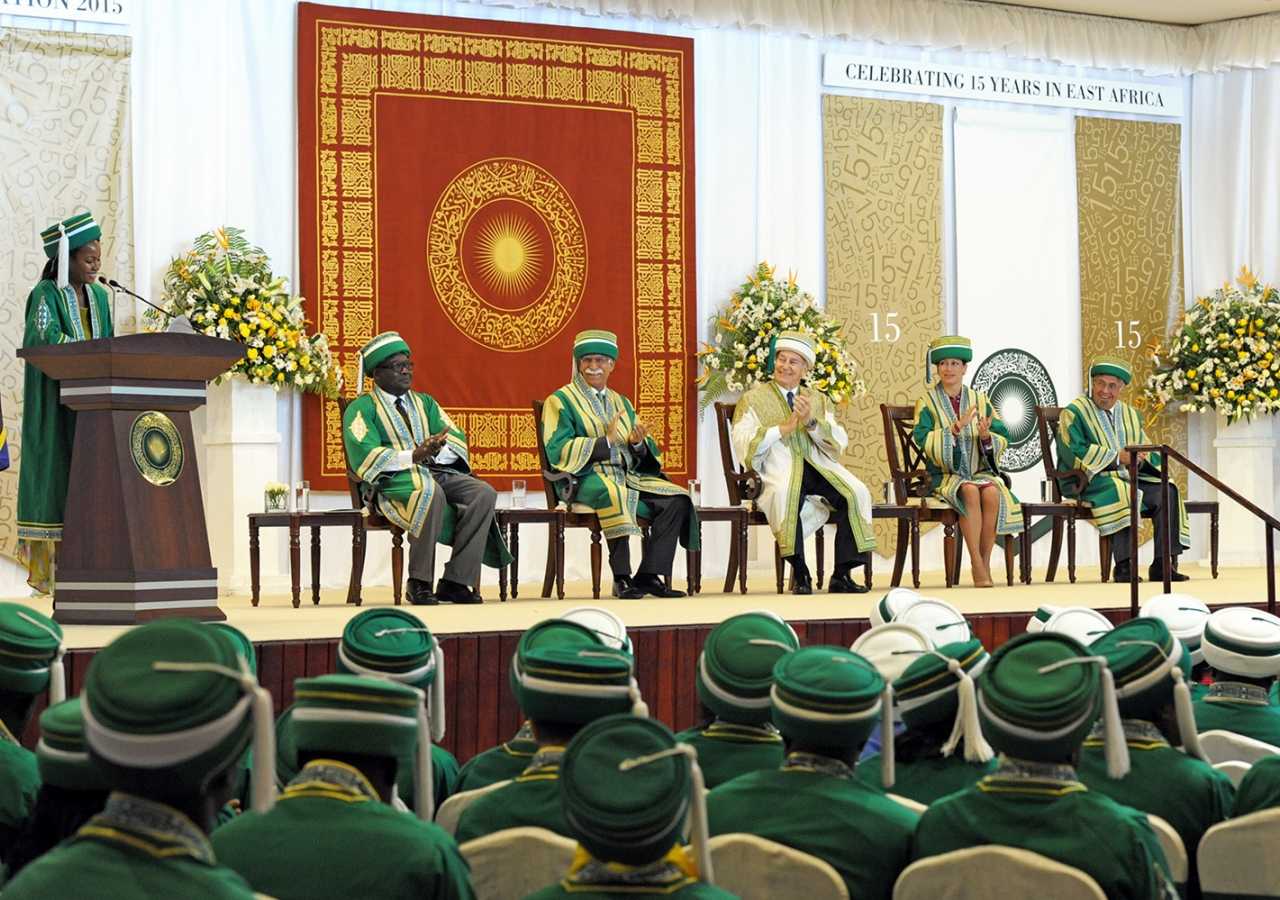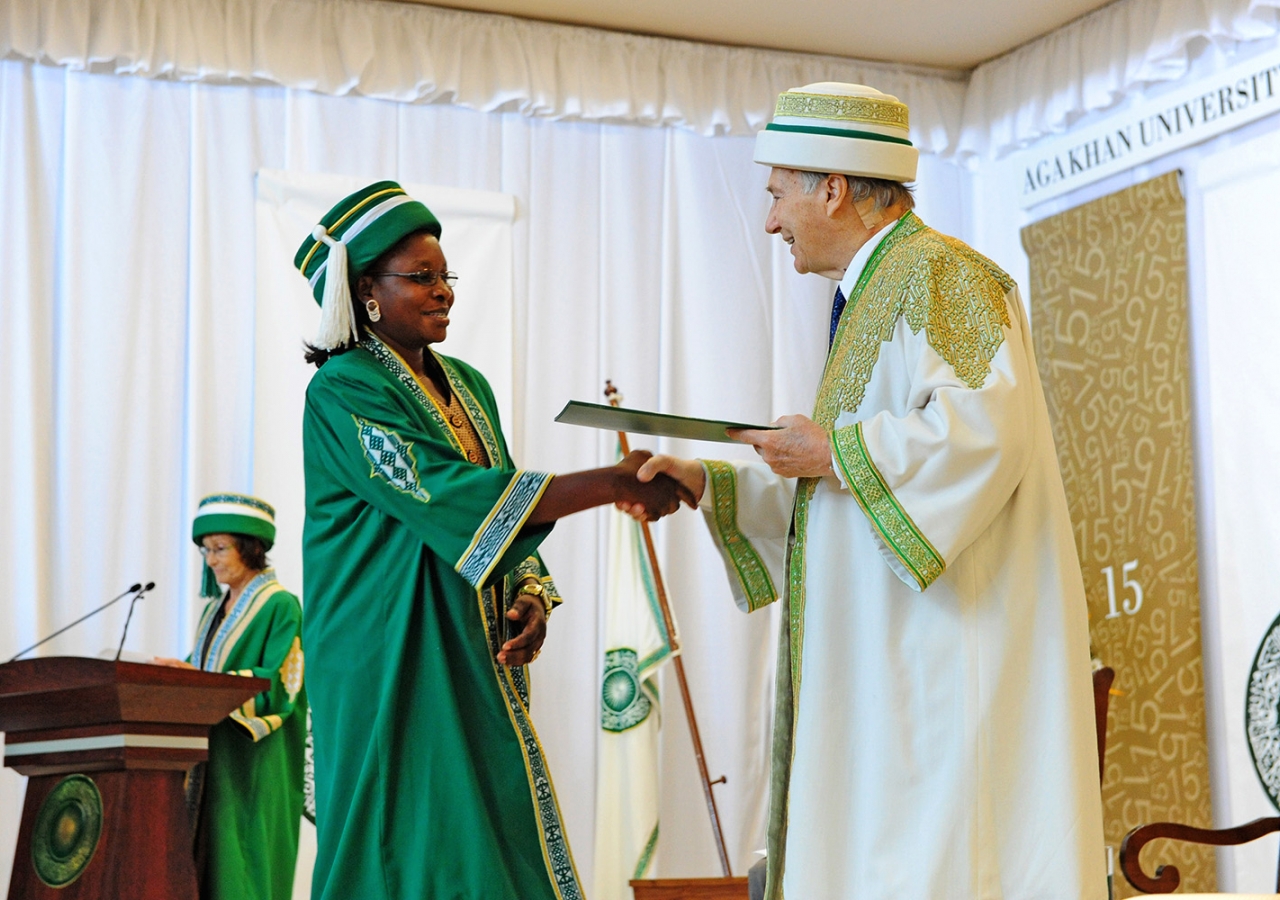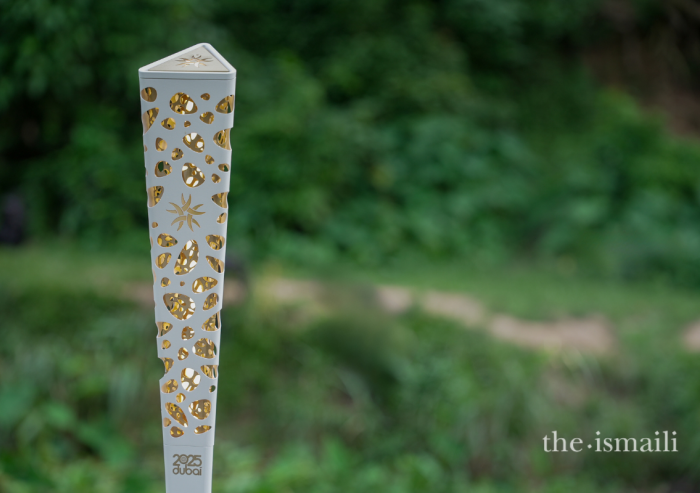Hundreds gathered at Diamond Jubilee Hall to take part in the 2015 Convocation of the Aga Khan University, Tanzania this morning.
As Chancellor of AKU, it was the first time that Mawlana Hazar Imam was presiding over a convocation in East Africa. The ceremony also marked 15 years of the university’s presence on the continent, and was attended by dignitaries, senior AKU faculty and trustees, including Princess Zahra.
Congratulating the class of 2015 — which counted 58 graduands in Nursing, Medicine and Education — AKU President Firoz Rasul thanked them as well. “In joining the ranks of our several thousand East African alumni, you are helping to forge a tradition of excellence and impact,” he said.
AKU has educated some 1 900 nurses in Kenya, Tanzania and Uganda, and through its nine medical residency programmes is developing much needed specialist physicians in a number of disciplines. Its Institute for Educational Development has awarded more than 157 Master of Education degrees and trained 3 000 educators, who are able to bring effective teaching methods and leadership practices to schools throughout the region.
The Aga Khan University is marking “a historic milestone,” said Mawlana Hazar Imam. “It was with particular happiness that I received the charter for the Aga Khan University from President Kikwete yesterday at a ceremony at State House,” he remarked. The enshrinement of the university’s charter under Tanzanian law is the first time the country has accorded such recognition to a foreign-based institution of higher learning.
“It sets the stage for expanding the University and introducing new schools, faculties and institutes in Tanzania and the region,” said Hazar Imam.
Over the next fifteen years AKU will invest $1.1 billion in this expansion, representing the largest private investment in higher education in East Africa’s history. Included are plans for a new campus in Arusha that will house a Faculty of Arts and Sciences, “a new teaching hospital, a training hotel, new community schools and housing facilities, a technology and research park, and an important new library,” said Hazar Imam.
Graduate professional schools in Media and Communications, Hospitality, Leisure and Tourism, Leadership and Management, Architecture and Human Settlement, Law, and Government, Civil Society and Public Policy will bring critical knowledge and capacity to the region. Another new campus in Dar es Salaam will be home to the Institute for Educational Development, while medical and nursing programmes and facilities are being established in Kenya and Uganda. With the expansion, AKU will teach an additional 17 000 learners per year, and expects to provide direct and indirect employment to 60 000 people.
Admittedly, this is “a long list of new initiatives, but not an unrealistic one,” Mawlana Hazar Imam told the graduands. “These developments also mean that AKU will continue to be a valuable reference point for you.”
“Even as the AKU story develops,” he said, “so can your relationship with the university.”









